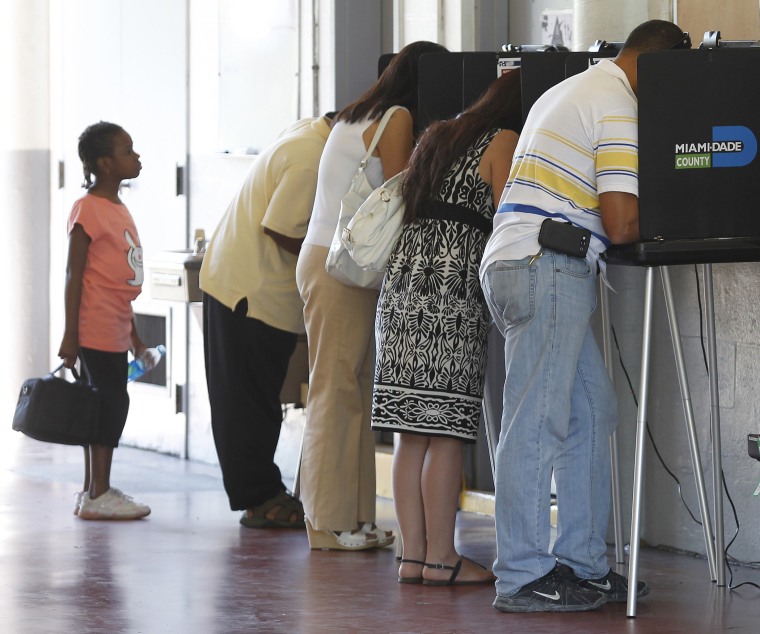At a certain level, proponents of expanding voting rights have had reason to cheer the start of 2014. Just over the last two weeks, a bipartisan group of lawmakers have unveiled legislation to help repair the Voting Rights Act, and a nonpartisan group of election lawyers have presented recommendations to improve voter access. After relative inaction throughout 2013, all of a sudden, the issue is on the front-burner again.
But the developments, while heartening, come with a caveat: they'll still need support from conservative policymakers who have an incentive to ignore the proposals.
On the VRA, for example, lawmakers recently unveiled the "Voting Rights Amendment Act," a reform bill intended to respond to the U.S. Supreme Court, which gutted the Voting Rights Act last summer. Since its introduction, the House version has picked up only eight co-sponsors, while the Senate version has only two. That's a pretty slow start given the Voting Rights Act passed with near-unanimous, bipartisan support as recently as 2006.
And what about the systemic reforms recommended in a new commission report, coauthored by the lawyers from the Obama and Romney campaigns? As Zachary Roth reports, Republicans aren't exactly rushing to embrace these ideas, either.
"The administration of elections is inherently a state function so I do not believe that new one-size-fits-all Washington mandates would be of assistance," Rep. Candice Miller, a former Michigan secretary of state and the House GOP's point person on voting issues, said in a statement. The Republican National Lawyers Association, a group of GOP election lawyers that has played a key role in advancing voting restrictions, echoed Miller's view.
As a substantive matter, it's important to note that the objections raised by Candice Miller, allegedly the go-to House Republican when it comes to voting issues, are completely wrong.
The commission report released this week, for example, included no "mandates." It also makes no mention of "one-size-fits-all" solutions -- the report offers goals to make voting easier and details how officials can help reach those goals.
Miller's complaints seem entirely disconnected from the document itself, as if she disagreed with it before reading it.
Which brings us back to what we discussed a few days ago. Republicans have come to the conclusion that the more voters are able to participate, the harder it is to GOP candidates to succeed. The result has been predictable: a policy agenda that creates longer voting lines on purpose, closes early-voting windows, addresses imaginary voter fraud through punitive voter-ID laws, and restricts voter-registration drives.
The most glaring voting fiascos in recent memory were not the result of an accident – Republican policymakers made a conscious decision to make the voting process more difficult. The resulting mess was, as far as the GOP was concerned, a feature, not a bug.
The nonpartisan commission concluded that "no citizen should have to wait more than 30 minutes to vote." It's a simple concept that well-intentioned officials should be able to accept regardless of party or ideology, but so far, it's not finding many takers on the right.
